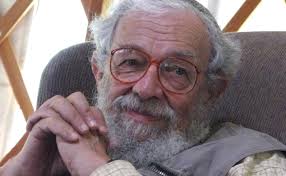 Mullah Nasrudin supervised the building of his own tomb. At last, after one shortcoming after another had been righted, the mason came for his money. "It is not yet right, builder." Whatever more can be done with it?" "We still have to supply the body." This is my last post in A Year of Stories. It has been a labor of love, and I am grateful to you for coming along on the journey. Tomorrow, Monday, June 22, is Tammuz 5, and marks Reb Zalman's 1st Yahrtzeit. Below you will find links to some of the amazing stories about both his preparation for death and the day of burial. The Nasrudin story makes more sense within the context of his preparation. Here is a story of R Zalman preparing for his own death. You can hear an interview with R' Zalman about his mindful preparation for death here. Yesterday, my holy gathering, Minyan Oneg Shabbat, dedicated our Shabbat morning to R' Zalman's teachings. We read and discussed some gems that I had collected, many of them from R' Rachel Barenblat's blog The Velveteen Rabbi. Yitgadal, v'yitkadash, shmai rabah... Blessings to you all, R' Mark (If you have not already begun to do so, it is time to begin citing R' Zalman as we do all the sages) Reb Zalman teaches: Sometimes I talk with people and ask, "Who are you?" And they tell me their name. And I say, "Thank you, but who are you?" And they tell me they're the parent of, the child of. And I say, "Thank you, but who are you?" And they tell me about the work they do. And I say, "Thank you, but who are you?" And so on, until the only answer we can give is, "I am God." My bubbe [grandmother] exemplified the priesthood of the kitchen. We all wish sometimes for that simple piety. Look at the face of someone praying and you have an idea of what their God is like. Just as we have physical DNA, so we also have spiritual DNA operating in us. We can't drive solely with the rearview mirror...but we can't drive without it, either. Nefesh, Ruach, Neshama, Chaya, Yechida [levels of soul as understood by the Jewish mystical tradition]: these are vast parts of ourselves we aren't aware of. When we shed our bodies of flesh, we still have bodies of energy. Once I davvened in a synagogue in India. In the Hindi siddur [prayerbook] the word "Adonai" [Lord] was translated as "Rameshvar," rama eshvara, my chosen deity. Some people choose Ganesh, and some people choose Kali, and some people choose Adonai! We give each other permission to fully celebrate the Divine in our own way ("you show me yours, I'll show you mine"!) We need a dialogue of devoutness between peoples, not a dialogue of theology which leads to argument. One of my favorite bumper stickers reads, "Don't believe everything you think." I'm interested not only in solo contemplative practice, but in "socialized meditation!" The hadith, revelation to Mohammed, tells us, "God is closer to you than the vein on your neck." If I could hear all of the vibrations in this room -- cell phones, broadband, wifi, radio waves, microwaves -- I'd hear a jumble. If I can tune in to a particular frequency, I might hear something I could understand. God broadcasts on all frequencies; we need to adjust our radios to attune to God. Philosophers don't dig it because they want a single definition, an object. I'm talking about God as a verb. People who have triumphalist notions that God only speaks to the Jews are not correct. Different people attune to different frequencies; God speaks on all frequencies; we receive based on where we're open. In Aramaic, the word for window is kavan, related to the term kavvanah [focus or intent, esp. in prayer]. In davvening, we need to open a window. When we first saw earth from space, there was a paradigm shift. We can conceive of earth as a single being now. Earth is a being who maybe has emphysema now, has blood poisoning. And people who care only for themselves and their own expansion are like cancer cells. But every religion is a vital organ of the planet: all are needed, all are interdependent. So then people ask, "If you're so universal, why be Jewish?" And my answer is, because the Jewish organ needs to be healthy, and if we're truly who we are, that helps the other organs be who they are. We have a responsibility to tune in. Be clear what you are doing. What screen name do I want, to log in to God? The person who leads prayer has to check out what the people can handle, and enter into it with them. In unfamiliar worship contexts, I pause and ask myself, "How can I serve God in this place and this way with these people?" Find your ideal of God that you can be vulnerable to. For me, it's Ribbono shel Olam [master of the world]; for you it might be God as therapist, God as guru, as rebbe. Even the four worlds teaching is only a mental scaffold. Torah isn't just information; we don't just read it for the literal meaning of the text. Imagine if Eve said to me, "Zalman, I love you," and I replied, "Yah, you told me that last week, I know already!" It's not about the information. Thanks to philosophy and advanced study, we can come to understand the enormity of God, of the ein-sof ["without-end," a mystical understanding of God]. The problem is, God becomes a little too big. What are we that this enormous and infinite God should find us significant? But this is a heresy greater than that of thinking God is small. To God a galaxy, a human life: each has significance. I am not an "oops" of God! I'm a spiritual Peeping Tom. I want to see how people get it on with God. It's all real, in every religion; that's what escaped us in Hebrew school. Concepts are objective. They're the means with which I think. But God is not a concept. God is in the nominative: not existence, but pure being. Many religions have good ways of connecting with God. I'm a gonif ["thief"]: I steal them. And usually it turns out we had them already! What Judaism has which is unique is the idea of covenant...The Torah tells us we are children of (we share DNA with!) God. But the covenant is two-sided: anu amecha, v'atah malkeinu. ["We are your people, and You are our ruler"]. This is our root metaphor, deeper than our way of thinking. It's a relationship with God. How often we davven words, discuss theology, without addressing God. It's almost an insult, to talk about God as though God weren't right here! We need to relate to God in the second person, I-Thou. The Zionist dream is shattered. It doesn't energize us as it once did. The American dream, too, is shattered; the 4th of July used to be such an important yontif [holy day] for me! What will fill these gaps? When we are infants, all our needs are filled by nursing. As adults there's a temptation to go to the refrigerator to fill all of our needs, but it won't work; it can only feed physical hunger. We feel scarcity on this plane, in assiyah, because we don't know the other planes exist. We need to learn the discipline of asking, "In what plane am I hungry?" Food will feed assiyah hunger, but yetzirah hunger is for love. Beriyah hunger needs great thoughts in order to be sated. And atzilut hunger requires us to go inside, to reach for God. To connect with God, to log on to God, we need only awareness, because God is there all the time, making your heart beat. The mystics talk about bittul ha-yesh, destroying "thingness," ego. But I don't want to destroy my ego! It's a good manager, though a lousy boss. My goal instead is to make the ego more translucent, more transparent. To remove opacity so divine light can shine. The ego says, "it's all me." But we need to own that everything in us is God. Some days I wake up and think, "Oy, God, you decided to be Zalman again today?" The tradition teaches that the Shekhinah [feminine, immanent divine presence] is there whenever a minyan prays together; when one prays alone, angels carry one's words to God, and since angels traditionally were understood to speak only Hebrew, that's why prayer was supposed to be in Hebrew. For me: I want to davven in Hebrew on Shabbos because it connects us all around the world and throughout time. But during the week when I davven alone, I often want to pray in English because that way I can pour out my heart to the Presence that hears me. The Jewish holiday cycle mirrors the cycle of a life. We begin with Chanukah, as light grows in darkness. Then comes Tu B'Shvat, things begin to vernalize, juice begins to flow. Then Purim, adolescence. Then Pesach, we're emancipated, like turning 21! By midlife we have a mature connection with God and receive revelation, and this is Shavuot. Then comes the midlife crisis: Tisha b'Av, the destruction of the Temple. Then the shofar blows, retirement comes, it's time for teshuvah(inner work/turning towards God), Rosh Hashanah. Then Yom Kippur, in which we realize that some things are only reparable if we meet God in atzilut to wipe the slate clean. Shemini Atzeret and Simchat Torah are full of zaide-energy. Sukkot is retirement age, we move out of our homes and into little dwellings. And then comes Chanukah again, and that's the end. "Once upon a time," Eliade's "in illo tempore": we begin stories by hearkening back to holy time, elastic time, time before time. If we can't remember the revelation at Sinai, we need to recreate the memory. It's like experiential karaoke! The tradition is the music, and we reenact and recreate the words of the song. On Rosh Hashanah we install a new Godfield, because the old one has been clogged over the course of the last year. God is scattered in our lives. But imagine if we came together to invest our mitzvot, our spirit, our bit of God in a kind of credit union in which we each had a share. We each make deposits, of prayer and energy; we pool our energy; and then we're connected and can draw from the pool too. And it grows with every generation. And we're all shareholders, stakeholders, in it. How many of us own shares in the future of Judaism? Once we offered sacrifices, sheep. Then we offered words to mimic the sacrifices. Now we offer time and attention to God. One of the greatest pains in old age is unlived life. Get a sense of your story, your trajectory, to plan where you want your life to be. Once I prayed, "God, inscribe me in the book of Life!" And God said, "Don't be a fool! Write your own page." Deep ecumenicism: really squaring ourselves with the ideas of a post-triumphalist period, with the idea that God speaks more languages than we. When you run out of old stories, invent new ones. I told one to my children once about the Baal Shem Tov [early Hasidic master, lit. "Master of the Great Name"] of the future, on the Enterprise. A call came in from a planet needing help: a planet of creatures with two heads, who wanted to know how many are required for a minyan! So he goes to talk with them, learns who they are, discovers that in almost every case one head is a Hasid and one is a mitnagid! [A rationalist, opposing the mysticism of Hasidism.] So he decides, for a minyan you count ten heads and not ten penises...which also means you count women, too. Activate the imagination to give meaning to your life, to help you repair your dreams and darn the holes in the world. This is nothing new. I'm just here to remind you of what you already know. Learning it once isn't enough. We are dreaming the dream of Judaism into the future.
0 Comments
 There are many versions of this well known story. This one can be found in Dov Noy's (z"l) book Folktales of Israel, Pg 94-96. The story has a basis in history, although the historical event(s) upon which it is based - the disputation - were not laughing matters. We are all indebted to Dov Noy for his work in preserving our rich oral heritage. He established the Israeli Folktale Archives to record oral tales from people who came to Israel from many countries. This story is the penultimate one in my project, A Year of Stories. Thanks so much for coming along for the ride. I am blessed to have received so many positive responses, and my hope is that you put these stories to good use. Please consider offering a tax deductible donation of any amount in honor of this project. Thank you...and may you go from story to story! R' Mark Once there was a wicked priest who hated Jews. One day he summoned the chief rabbi and said to him, "I want to have a dispute with a Jew in the language of signs. I give you thirty days to prepare yourself, and if nobody appears to take part in the dispute, I shall order that all the Jews be killed."
What was the rabbi to do? He brought the bad tidings to his people and ordered them to fast and to pray in the synagogue. A week went by, two weeks, three weeks passed, but there was no one witht he courage to accept the priest's challenge, and the great responsibility. It was already the fourth week, and still there was no one to represent the Jews in the dispute. Then along came a poultry dealer who had been away, bringing chickenss fron the nearby villages intot he town. He had not heard what was going in there, but he noticed on his arrival that the market was closed, and at home he found his wife and children fasting, praying, and weeping. "What is the matter?" asked the poultry dealer. His wife replied, "The wicked priest has ordered a Jew to hold a discussion with him in the language of signs. if there is no one who is able to do so, all of us will be killed." "Is that all the matter?" wondered the poultry dealer in surprise. "We'll go to the rabbi and tell him that I am ready to participate." "What are you talking about? How can you understand the priest? Greater and wiser men than you have not been willing to take upon themselves this task!" cried his wife. "Why should you worry? In any case we shall all be killed." And off they went together to the rabbi. "Rabbi," said the man, "I am ready to meet the priest!" The rabbi blessed him. "May G!d help you and bring you success." So the priest was told that a Jew, sent by the rabbi, would hold a discussion with him in sign language. "You have to understand my signs and to answer them in the same way," explained the priest to the Jew before a great assembly. Then he pointed a finger to him. In reply the Jew pointed two fingers. Then the priest took a piece of white cheese from his pocket. In reply the Jew took out an egg. Then the priest took the seeds of some grain and scattered them on the floor. In reply, the Jew set a hen free from the coop and let it eat up the seeds. "Well done," exclaimed the priest in amazement. "You answered my questions correctly." And he gave the poultry dealer many gifts and ordered his servant to bathe him and to give him fine garments to wear. "Now I know that the Jews are wise man, if the most humble among them was able to understand me," admitted the priest. The town was in great excitement, and the people waited in suspense for the result of the dispute. When they saw the poultry dealer leaving the priest's house in fine garments and with a happy expression on his face, they understood that everything was in order, blessed be the Almighty. "How did it go? What did the priest ask you?" all the people wanted to know. The rabbi called the poultry dealer to his home and asked him to relate what had happened. And this is what the poultry dealer related: "The priest pointed with one finger to my eyes, meaning to take out my eye. I pointed with two fingers to imply, I would take out bioth his eyes. Then he took out a piece f cheese to show that I was hungry while he had cheese. So I took out an egg to show that i was not in need of his alms. The he spilled some wheat grain on the floor. So I fed the hen, knowing it was hungry and thinking what a pity to watse the grain." At the same time the priests's family questioned him. "What did you ask the Jew? What did he reply?" The priest related: "At first I pointed one finger, meaning that there is only one king. he pointed with two fingers, meaning there are two kings, the king in heaven and the king on earth. Then I took out a piece of cheese, meaning, Is this the cheese from a white or a black goat? In answer he took out an egg, meaning, Is this egg from a white or a brown hen? Finally I scattered some grain on the floor, meaning that the Jews are spread all over the world. Whereupon he freed his hen which ate up all the grain, meaning that the Messiah will come and gather all the Jews from the four corners of the world." 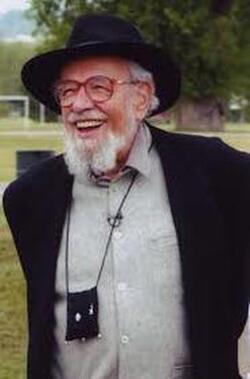 One of the first teachings that I heard from Reb Zalman, tz"l, was his practice of asking G!d each morning what was his deployment for that day. More specifically, he would ask G!d, "How do you want to Zalman me today?" Sometimes it takes a prayer to remember who we are, andwhat our sacred deployment is - sometimes a song or a poem or a story, or a child, or simply sitting in silence. Whatever it takes, Shavua Tov In Ropchitz, the town where Rabbi Naftali lived, it was the custom for the rich people whose house stood isolated or at the far end of the town to hire men to watch over their property by night. Late one evening when Rabbi Naftali was skirting the woods which circled the city, he met such a watchman walking up and down. "For whom are you working?" he asked. The man told him and then inquired in his turn" And for whom are you working, Rabbi?" The words struck the tzaddik like a shaft. "I am not working for anybody just yet," he barely managed to say. Then he walked up and down beside the man for a long time. "Will you be my servant?" he finally asked. "I should like to," the man replied, "but what would be my duties?" "To remind me of the One to who I am of service ." ************************************************************************* Have you enjoyed reading my posts? Only a few left to go before R' Zalman's first yahrtzeit. Please consider offering a tax deductible donation to in honor of this project and to support DC's Jewish Renewal community Minyan Oneg Shabbat. Thank you, R' Mark  Oftentimes, an audience member will come up to either me or Renée after a performance and ask, "Is that a true story?" Our answer will usually sound something like, "I don't know if the events actually happened, but it is a true story." This story is a good example of such a story. At the edge of town there is an abandoned synagogue that people call the weeping synagogue. Birds nest there. Squirrels come and play there. But no one prays there. Many of the local Jews believe that it is haunted. They abandoned it, moved the Holy Torah scrolls, turned off the Eternal Light, and built a brand-new synagogue on the other side of town. This is the story the oldest members of the community tell about it. Once, long ago, we had a rabbi who was a scholar. He taught brilliant classes and gave astounding sermons. Late at night he could often be found alone in the synagogue, the old synagogue, studying the holy books. He would study late into the night, early into the next morning. One night, when the rabbi was the last person awake in the whole town, a voice spoke to him from inside the Holy Ark. "Make a wish. Heaven has seen how good and how holy you are, so make a wish.:" The rabbi thought and thought, then said, "I have nothing for which to wish. I have health and family. I have enough to eat and wear, enough things, enough of a place to live. I am happy with my work. I am happy with my portion in life." At that moment the ark began to cry. A huge sobbing started. Then the voice began to speak again, "You could have done so much. You could have brought peace or ended hunger. Human suffering could have ended, but you thought of wishes as only for you." The crying continued. In the morning they found the rabbi collapsed on the floor. They woke him, took him home, washed his forehead, and fed him soup. By evening he was gone. He said nothing to anyone. But the crying started that day. From then on the synagogue felt like a sad place. At night, when the wind blew, it became a sobbing voice that seemed to come from the ark. Anyone who was in the synagogue heard the ark cry, "If only...If only..." It became too much for the community. They built a new synagogue and started over. This story can be found in Stories We Pray, by Joel Lurie Grishaver, Pg 212-213. I highly recommend this book. In his foreword Mr. Grishaver says, "I began collecting stories because Shlomo Carlebach told stories." That's good enough for me. Have you enjoyed reading my posts? Only a few left to go before R' Zalman's first yahrtzeit. Please consider offering a tax deductible donation to support this project and the work of DC's Jewish Renewal community Minyan Oneg Shabbat.
Thank you, R' Mark 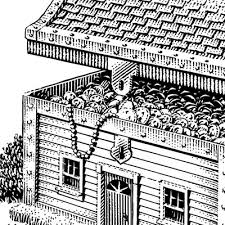 Martin Buber, in Hasidism and Modern Man, tells the well known story of Rabbi Eizik, son of Rabbi Yekel of Cracow. ************************************************* After many years of great poverty that had never shaken his faith in G!d, Rabbi Eizik dreamed that someone told him to look for a treasure in Prague, under the bridge that leads to the king's palace. When the dream occurred a third time, Rabbi Eizik set out for Prague. But the bridge was guarded day and night and he did not dare start digging Nevertheless, he went to the bridge every morning and kept walking around it until evening. Finally the guard, who had been watching him, asked in a kindly way whether he was looking for something or waiting for somebody. Rabbi Eizik told him if the dream that had brought him here from a faraway country. The guard laughed: "And so because of a dream, you wore out your shoes to come here! As for having faith in dreams, if I had had it, I once had a dream that told me to go to Cracow and dig for treasure under the stove in the room of a Jew - Eizik, son of Yekel, that was the name! Eizik, son of Yekel! I can just imagine what it would be like, how I should have to try every house over there, where one half of the Jews are named Eizik and the other Yekel!" As he laughed again. Rabbi Eizik excused himself, traveled home, dug up the treasure from under his own stove, and used the treasure to build the House of Prayer that is called "Reb Eizik Reb Yekel's Shul." "Take this story to heart," added Buber, and make what it says your own. "There is something you cannot find out there in the world... there is a place within yourself where you can find it." Re-told in Spiritual Judaism, by David Ariel, Pg 53 Have you enjoyed reading my posts? Only a few left to go before R' Zalman's first yahrtzeit. Please consider offering a tax deductible donation to support this project and the work of DC's Jewish Renewal community Minyan Oneg Shabbat.
Thank you, R' Mark 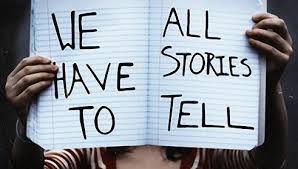 I have to admit to feeling a touch of melancholy about the approaching end to this project. Truly Reb Zalman has been with me with each new post. What better way to hold onto that for a tad longer with, what else, a story about stories. Once some disciples of the Baal Shem Tov approached him and asked: "Why do you answer all questions by telling a story? Why do you always tell stories?" The disciples then steeled themselves, certain that, true to the tradition, the Baal Shem Tov would necessarily answer such questions about a story with a story. But the Baal Shem Tov, after a loving, lingering pause, responded, "Salvation lies in remembrance." Have you enjoyed reading my posts? Only a few left to go before R' Zalman's first yahrtzeit. Please consider offering a tax deductible donation to in honor of this project and to support DC's Jewish Renewal community Minyan Oneg Shabbat.
Thank you, R' Mark 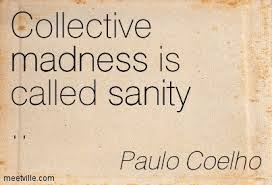 Reb Zalman's yahrzteit is 3 weeks from today, 5 Tammuz, June 22. 3 weeks, 6 more stories - Do you have one you'd like to share? This is a Sufi story, from Tales of the Dervishes, collected by Idries Shah. Once upon a time Khidr, the Teacher of Moses, called upon mankind with a warning. At a certain date, he said, all the water in the world which had not been specifically hoarded, would disappear. It would then be renewed, with different water, which would drive men mad. Only one man listened to the meaning of this advice. He collected water and went to a secure place where he stored it, and waited for the water to change its character. On the appointed date the streams stopped running, the wells went dry, and the man who had listened, seeing this happening, went to his retreat and drank his preserved water. When he saw, from his security, the waterfalls again beginning to flow, this man descended among the other sons of men. He found that they were thinking and talking in an entirely different way from before; yet they had no memory of what happened, not of having been warned. When he tried to talk to them, he realized that they thought that he was mad, and they showed hostility or compassion, not understanding. At first he drank none of the new water, but went back to his concealment, to draw on his supplies, eery day. Finally, however, he took the decision to drink the new water because he could not bear the loneliness of living, behaving, and thinking in as different way from everyone else. He drank the new water, and became like the rest. Then he forgot all about his own store of special water, and his fellows began to look upon him as a madman who had miraculously been restored to sanity. I am considering taking on anther project, also in honor of Reb Zalman, tz"l, that will need your input. A Year of Song would consist of niggunim, wordless melodies, with both music file and sheet music. Included might be suggestions for text(s) that you have used with the melody. I am leaning towards established niggunim, in contrast to original melodies.
If you would like to participate, please let me know, at [email protected]. |
Mark Novak is a "free-range" rabbi who lives in Washington DC and works, well, just about everywhere. In 2012 he founded Minyan Oneg Shabbat, home to MOSH (Minyan Oneg Shabbat), MindfulMOSH (Jewish mindfulness gathering), and Archives
June 2017
Categories
All
|
 RSS Feed
RSS Feed
